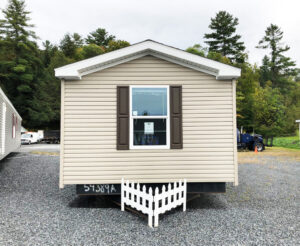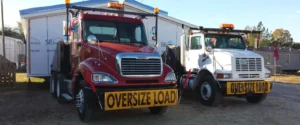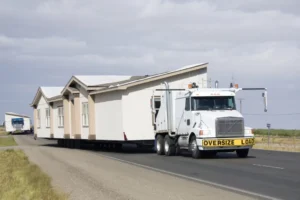Code laws on mobile and manufactured homes in South Carolina can be quite confusing.
Simply put, it’s important to understand the codes put in place by the SC State House and how to abide by them properly. I’ll be going through the updates for 2022 on mobile home code laws in South Carolina in this article.

Licensing
Before moving into your mobile home, get a license issued by the government (according to code section: 31-17-320). The owner or the rental agent needs to acquire a license from the licensing agent within 15 days after bringing the mobile home to the state.
To apply for the license, you need to submit a copy of the certificate of title of the mobile home to the licensing agent. After submitting the document and paying a licensing fee, your license is done, and you receive a certified copy of the licensing form. You’ll need to provide a copy of that form to the electricity supplier to get electricity in your mobile home.
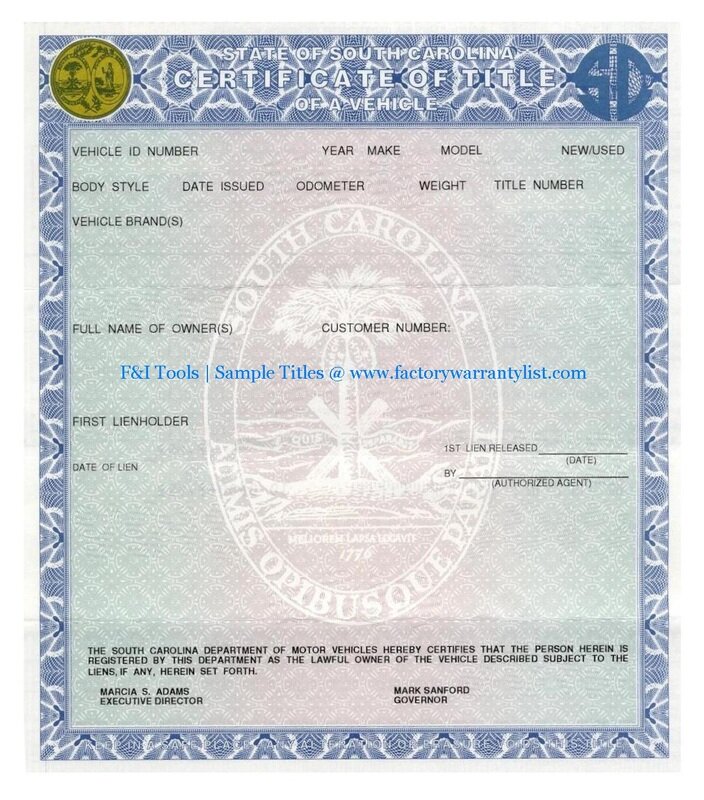
After the license is issued, you’ll receive a decal with the title and registration number of the mobile home. According to section:13.2, the decal needs to be displayed on the home in a way that, it can easily be seen from the street.
Moving Permit
To move or relocate the mobile home, the owner needs to acquire a moving permit from the licensing agent (according to section: 31-17-360). Without a permit, you can’t move in, out, or within Darlington County. The permit needs to be displayed in the back of the home during transportation. Failure to do so results in a violation of the law.
To get the permit, you need to submit receipts from the county treasurer and the county tax collector to the Tax Assessor’s Office. This acts as proof that all previous taxes and fees have been paid. To transport the mobile home outside of Darlington County, all current and previous taxes and fees need to be paid.
But this doesn’t apply to manufacturers when they’re delivering the home to the customer.
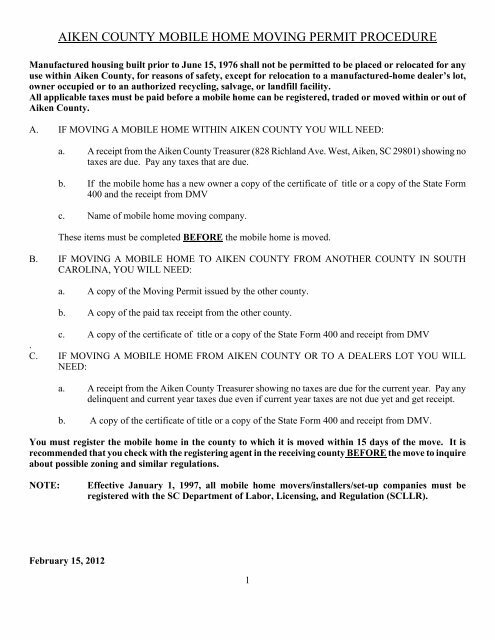
Sellers Responsibility
Sellers are required to complete a full bill of sale for every home they sell in the county. The bill must include all trade-ins, model name, serial number, date of trade, size, and the buyers’ name. For example… within 15 days of the trade, a copy of the bill needs to be mailed to the Darlington County Tax Assessor’s Office.
Mobile home sellers need to report all repossessions from the county within 15 days of the repossession. And all trade-ins from private lots must be removed within 30 days of the deal. However, this doesn’t apply to any deals with manufacturers and licensed sellers.
Habitability Permit
Before the home can be used, it needs a permit approving its habitability. The house will be inspected for defects, damage, holes in the floors and roofs, rotted and loose boards, and breaks. Water, and sewage lines, conditions of electrical systems, and plumbing will also be inspected. It also needs to have proper heating of the water and the rooms.
Sanitary Requirements
To acquire the permit, a mobile home needs at least a kitchen sink, a toilet, a bathroom, and a shower or a tub – they need to have proper water and sewage systems in a complete working condition and free of defects.
Proper Heating
The mobile home must have hot and cold water supplied through all the taps and showers. It also needs to have a heating system capable of heating all the rooms in the house, making it livable.
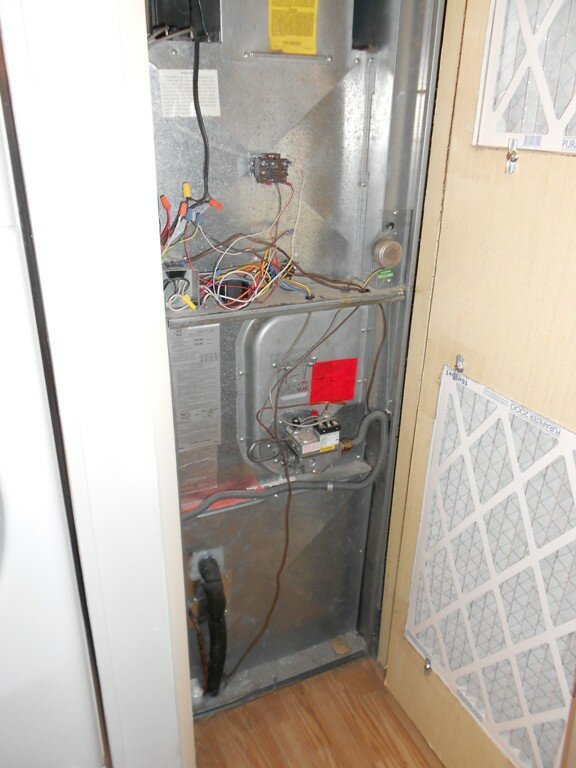
Cooking Equipment
All cooking equipment and heating appliances must be installed in line with the Federal Manufactured Home Construction and Safety Standards.
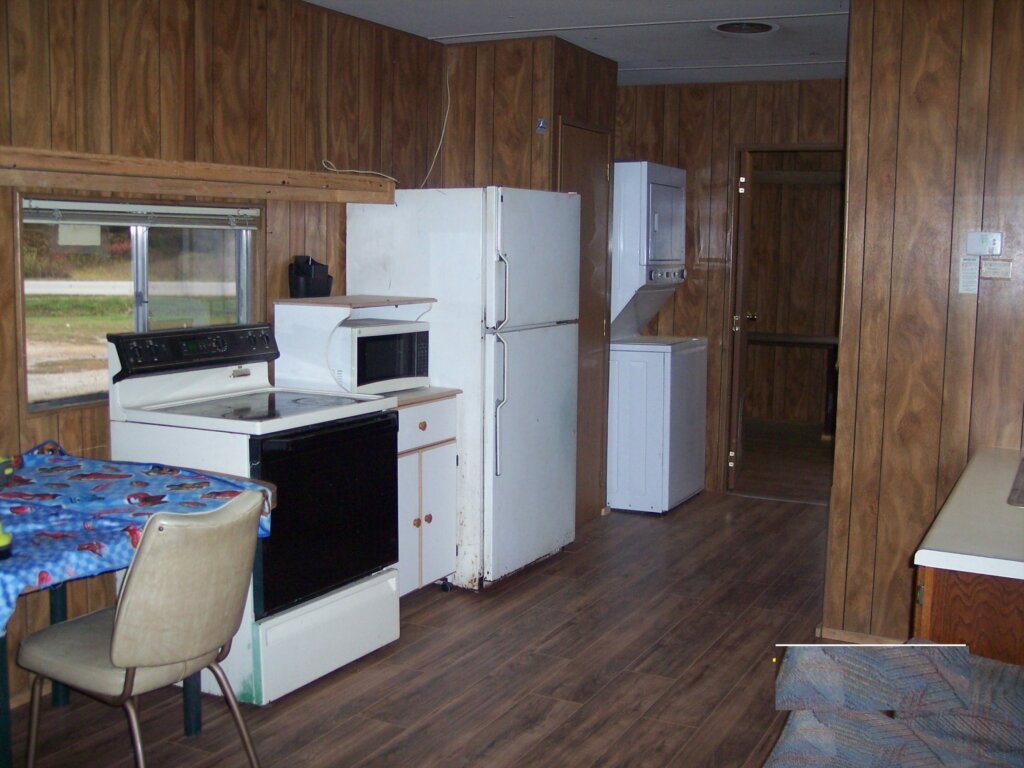
Smoke Detector
Every mobile home is required to have a smoke detector approved by the Federal Manufactured Home Construction and Safety Standards. It needs to set off an audible alarm when activated.
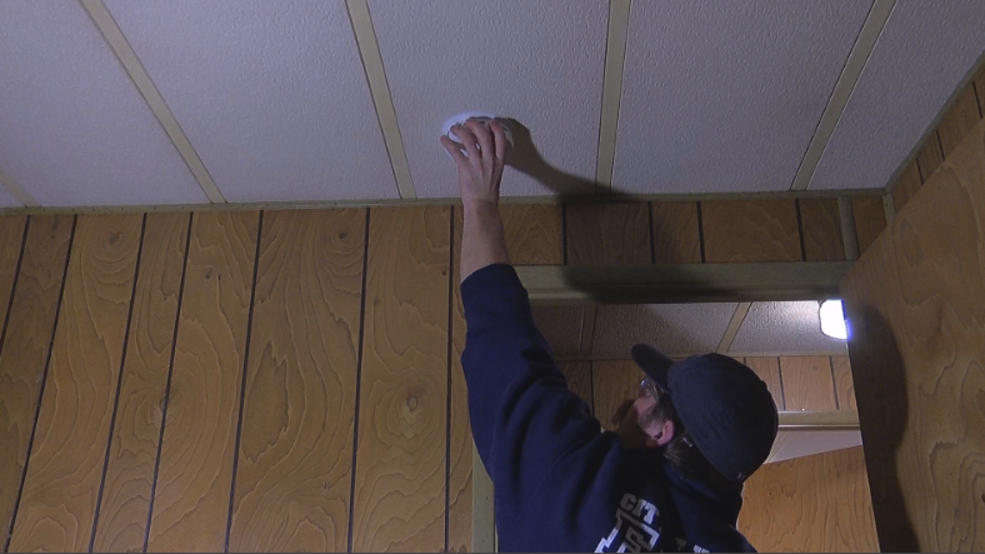
Failure To Meet Standards
No home can be inhabited before it’s inspected for its maintenance of the standards and regulations by the Codes Enforcement Department. If the home doesn’t satisfy the requirements to consider the home habitable, then the officials will take necessary action to compel the owner to make necessary refinements to make the home habitable.
Failure to do so will result in getting electricity denied or removal of the said home. Inhabiting the unit despite not being able to secure inspection will be considered a violation of the law, as stated by the section 13.8 (Ord. No. 01-14, § 9, 8-6-01)
In case of hardship, the Codes Enforcement Department can offer an exception, but only for 30 days.
Set-Up Regulations
Mobile home needs to satisfy Federal Manufactured Housing Construction and Safety Standards. To get permitted they need to meet the following criteria –
- The home needs to be installed in line with the manufacturer’s installation manual. In case of the manuals’ unavailability, the home must be installed according to the standards of Section 19-425.39 of the South Carolina Manufactured Housing Board Regulations
- It needs to have skirting all around the home with brick, and masonry for permanent outdoor installation
- Install permanent landing steps with handrails at each outer door
- Remove all moving and towing gear as well as wheels and axels
- Provide DHEC approved sewage system
- Use separate electric meters. Using electricity without using separate meters is illegal and can be punishable
Penalties
If the owner or dealer fails to satisfy the standards or the requirements stated above, then the Code Enforcement Department shall send a notice stating the violation, and a condition under said violation needs to be corrected. But if the owner fails to correct the violation the Code Enforcement Department will take legal action.
Anyone guilty of violating this law will be convicted of a misdemeanor and be punished by getting fined up to $200. And for each day after the provided time will be considered a separate violation.
Closing Thoughts
Buying a house can involve a lot of legal work. Especially with mobile homes, with licensing and permits. All of this can seem very overwhelming. But don’t worry, go through this article again if you need because it has everything you need to know to make the legal work as smooth as possible and avoid any unnecessary headaches.


